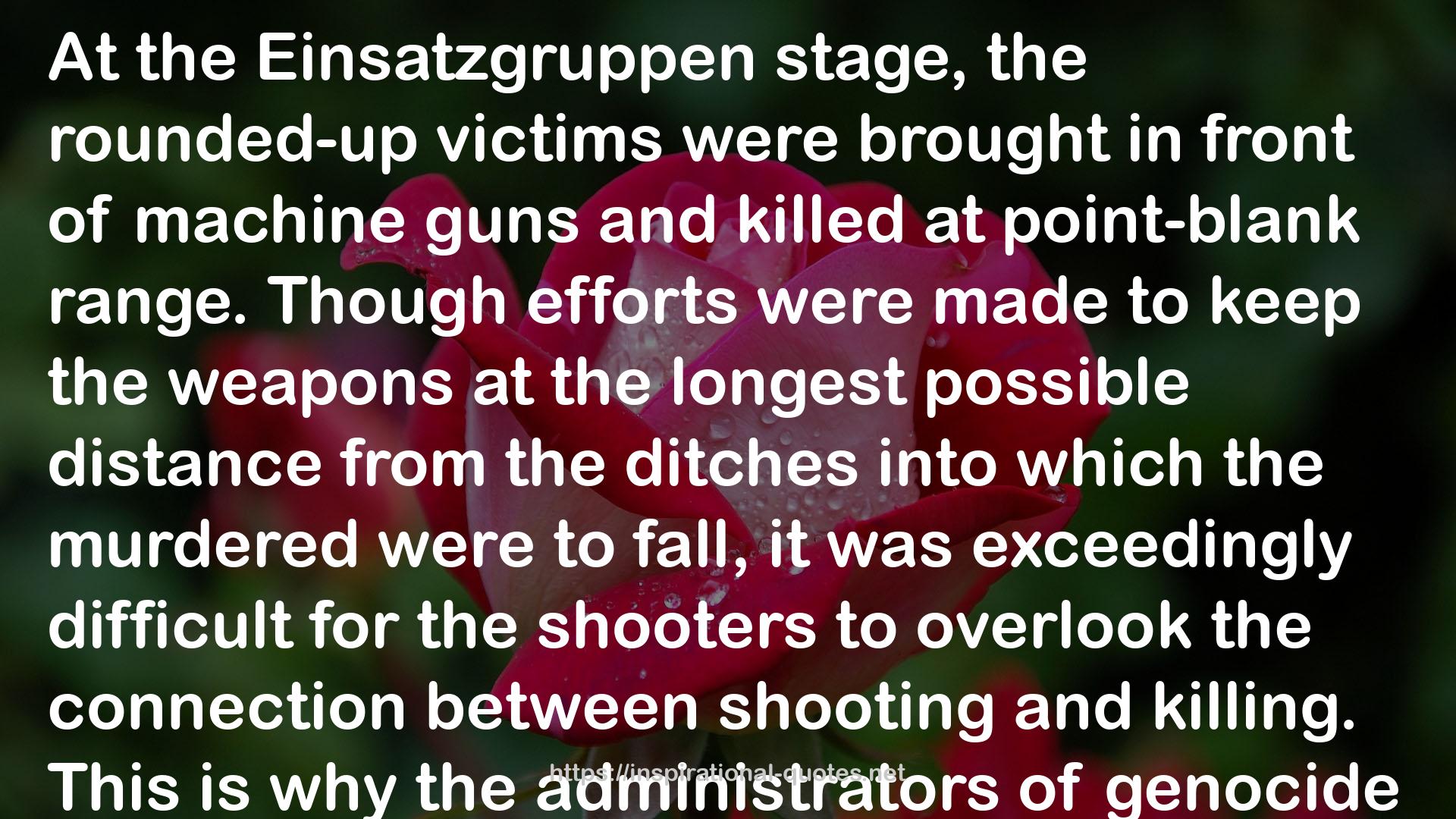" At the Einsatzgruppen stage, the rounded-up victims were brought in front of machine guns and killed at point-blank range. Though efforts were made to keep the weapons at the longest possible distance from the ditches into which the murdered were to fall, it was exceedingly difficult for the shooters to overlook the connection between shooting and killing. This is why the administrators of genocide found the method primitive and inefficient, as well as dangerous to the morale of the perpetrators. Other murder techniques were therefore sought — such as would optically separate the killers from their victims. The search was successful, and led to the invention of first the mobile, then the stationary gas chambers; the latter —the most perfect the Nazis had time to invent— reduced the role of the killer to that of the 'sanitation officer' asked to empty a sackful of 'disinfecting chemicals' through an aperture in the roof of a building the interior of which he was not prompted to visit. "
― Zygmunt Bauman , Modernity and the Holocaust
